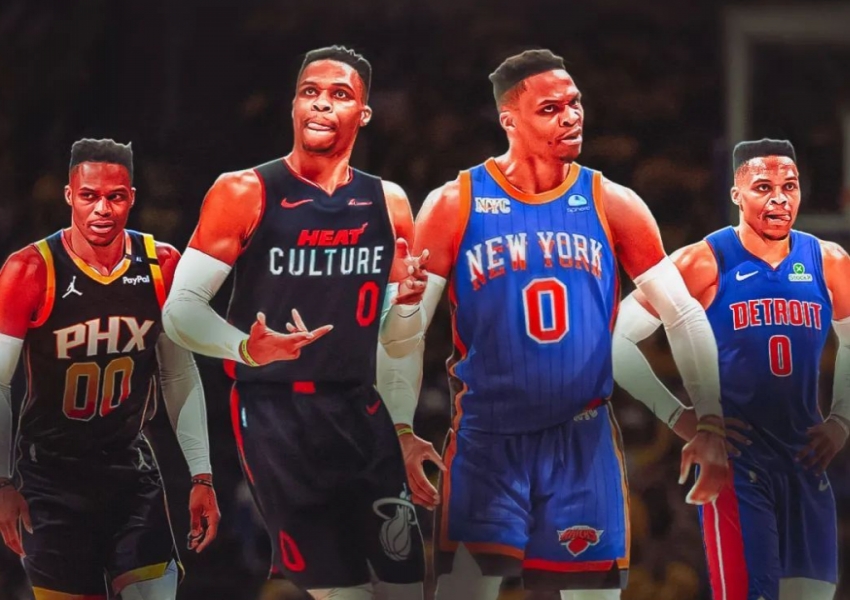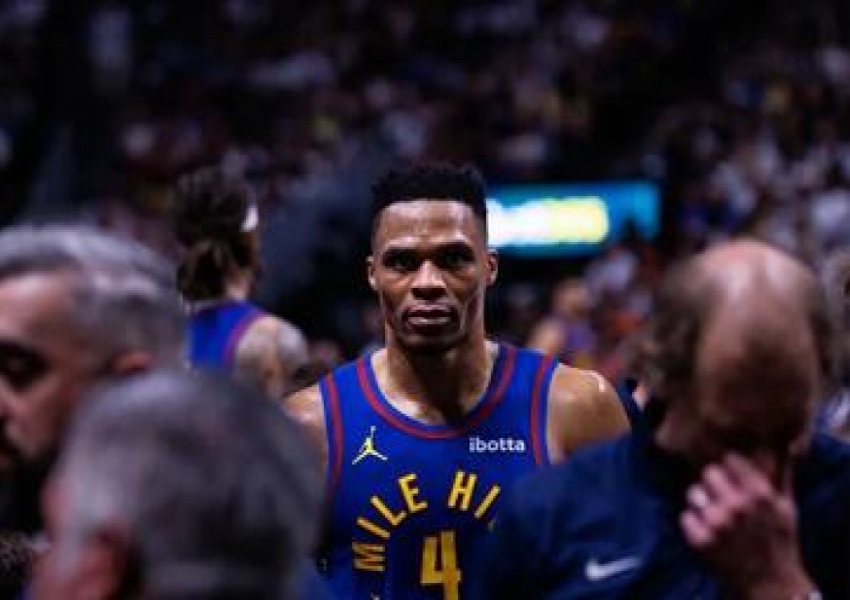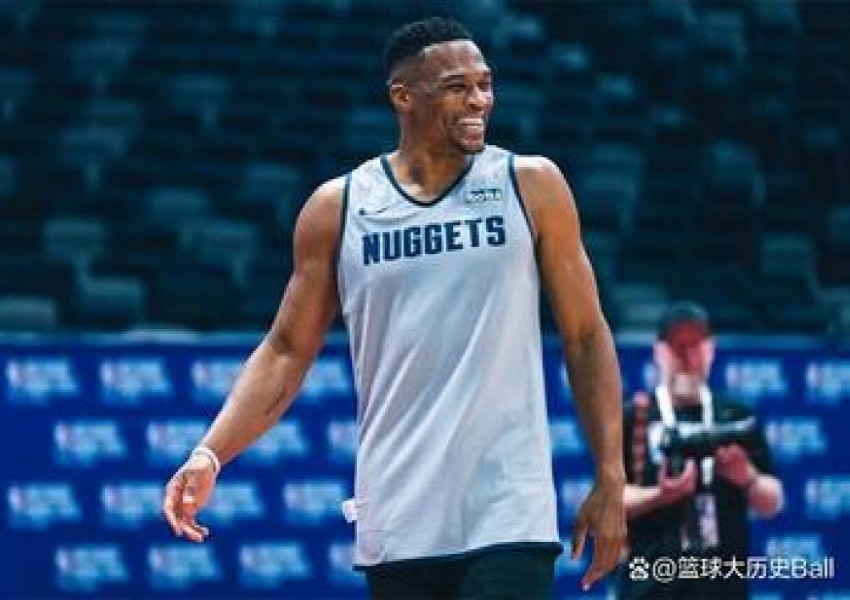What’s Next for Westbrook? Evaluating Russ’s Season and Future in the NBA
The Denver Nuggets’ season came to a disappointing end after a hard-fought seven-game second-round series against the Oklahoma City Thunder. For Russell Westbrook, this playoff run was a mixed bag, revealing both flashes of his trademark explosiveness and glaring struggles that raised questions about his current level of play and future role in the league. The story of Westbrook’s 2024-25 season is not one of a single player’s failure but a complex blend of roster construction, team dynamics, and individual adaptation. Yet, with free agency looming, the pressing question remains: What is Russ’s true level today, and where does he go from here?

A Rough Ride in the Thunder Series
The second-round series versus the Thunder was a microcosm of Westbrook’s roller-coaster season. Facing a team he once called home, Russ struggled to find consistency and impact. His final game in that series was emblematic of his difficulties — in 22 minutes of play, he scored just 6 points on 7 shots (2 for 7 from the field, 2 for 5 from three-point range), dished out 2 assists, grabbed 5 boards, but committed 4 turnovers. His -34 plus-minus was the worst on the Nuggets roster, underscoring the struggles Denver had when he was on the court.

Looking at the series as a whole, Westbrook’s production fluctuated drastically:

-
Game 1: 18 points on 13 shots, 2 boards, 2 assists
-
Game 2: 19 points, 1 board, 5 assists
-
Game 3: 8 points, 1 board, 4 assists
-
Game 4: 6 points, 3 boards, 1 assist
-
Game 5: 4 points, 4 boards, 3 assists
-
Game 6: 8 points, 3 boards, no assists
-
Game 7: 6 points, 5 boards, 2 assists
His averages for the series were 9.9 points, 2.7 rebounds, 2.4 assists in 22.7 minutes per game, with a shooting line of 34.8% from the field and just 21.9% from three. Real shooting efficiency stood at a low 45.3%. Outside the first two games, his scoring rarely reached double digits. Meanwhile, his assist-to-turnover ratio was nearly even—17 assists to 18 turnovers over seven games—which is concerning for a player known for playmaking.
Not Just Russ’s Fault: The Rotation Problem
Before any rush to judgment about Westbrook’s individual failings, it’s crucial to remember the context. Denver’s entire rotation was stretched thin in this series. The Nuggets lacked depth beyond their core, and aside from Russ and a handful of others like Strousser (who saw limited time), no bench player averaged more than 15 minutes per game. This lack of bench support meant Denver’s stars—Nikola Jokic, Jamal Murray, and Aaron Gordon—were heavily overworked, leading to fatigue and injuries, notably Gordon’s second-degree hamstring strain late in the series.
Comparing Denver’s bench to other playoff teams reveals just how limited the Nuggets were. Take the New York Knicks, often criticized for their “five-horse” rotation, but even they have players like McBride and Mitchell Robinson providing meaningful minutes. Denver had Russ as their only reliable bench piece, which puts an enormous burden on him and the starters.
In fact, without Westbrook, it’s questionable whether Denver would have made it past the first round at all. His first-round series against the Clippers was much more promising: over six games, Russ averaged 13.8 points, 4.8 boards, 2.8 assists on 43.3% shooting and a solid 41.9% from three. His scoring was second only to Jokic and Murray, and he proved capable of impacting games when healthy and confident.
The Resurgence in the First Round
Despite an early injury in Game 3 of the first round (where he played less than 9 minutes), Westbrook shined in Games 5 through 7 of that series. His numbers in those crucial matchups were impressive:
-
Game 5: 21 points on 15 shots (including 3-for-6 from three), half of those points coming in the first half
-
Game 6: A near triple-double with 14 points, 10 rebounds, and 6 assists
-
Game 7: A stat-stuffing performance with 16 points, 5 rebounds, 5 assists, and 5 steals
Those games reaffirmed Westbrook’s ability to impact the playoffs when on rhythm and health. His defensive activity, in particular, stood out, showing the improvement he’s made on that end over recent years.
Westbrook’s Regular Season: A Solid, If Flawed, Contribution
Taking a step back to the regular season, Russ exceeded many expectations. After joining Denver on a veteran minimum contract, Westbrook’s production was far from negligible:
-
75 games played
-
27.9 minutes per game
-
13.3 points, 4.9 rebounds, 6.1 assists
-
Shooting splits: 44.9% FG, 32.3% 3PT, 66.1% FT
-
Real shooting percentage of 53.2%
For a minimum-salary player expected to be a bench option, these numbers are quite respectable. Westbrook helped Jokic and Murray by absorbing ball-handling duties, enabling them to conserve energy and focus on scoring. His defensive role expanded significantly, even taking on leadership in perimeter defense for Denver’s starters.
However, Russ’s well-known flaws were still apparent—erratic offensive efficiency, frequent turnovers, inconsistency from deep, and occasional missed easy shots. These issues, while less damaging in a regular-season context, become much more glaring under playoff pressure.
The Role of Sixth Man—and Its Challenges
Westbrook’s role this season was essentially Denver’s sixth man: a high-usage, secondary creator off the bench who can ignite runs and provide defensive intensity. For much of the year, this worked well. But the playoffs exposed the limits of this role, especially against a tough defensive team like the Thunder.
At 35 years old, Russ is no longer the explosive triple-double machine who dominated games in his prime. The wear and tear of his playing style have taken their toll. Trying to do too much, especially with limited help around him, results in overextension and mistakes. When his shooting faltered and turnovers piled up, the Nuggets struggled to maintain offensive flow.
What’s Next for Russ?
With the offseason approaching, Westbrook faces a critical crossroads. He has a player option worth approximately $3.47 million for the 2025-26 season with Denver, which he can exercise by June 30. Staying with Denver makes sense for several reasons:
-
Jokic’s presence guarantees title contention opportunities. Russ wouldn’t have to be the primary option and can focus on his strengths.
-
Denver’s system and culture under coach Michael Malone seem to fit Russ better than previous stops.
-
The familiarity and established relationships could help Russ prolong his career effectively.
However, if the Nuggets want to contend seriously, they must address their bench depth. Adding a reliable shooting wing or a versatile scorer to ease the burden on both Jokic and Westbrook is imperative.
If Russ opts to explore free agency, he might face a narrower market than in his prime. Teams may view him as a veteran presence or a role player rather than a star. Still, his experience, leadership, and defensive improvement provide value.
Final Take: A Season of Mixed Signals
Russell Westbrook’s 2024-25 campaign defied easy categorization. On one hand, he contributed meaningfully on a bargain contract, helped his team reach the second round, and showed flashes reminiscent of his prime. On the other, his declining efficiency, high turnover rate, and inconsistency under pressure highlighted the realities of his evolving game and physical limitations.
Westbrook is no longer the unstoppable force of his younger days. But as a savvy veteran, he can still carve out a niche as a high-energy contributor and defensive catalyst. His future success will hinge on role clarity, improved shot selection, and playing within a team framework that can maximize his strengths while minimizing his weaknesses.
The question isn’t whether Westbrook still has NBA-level talent—he does. The real challenge is how he adapts and evolves in a league that demands precision and efficiency more than ever. The next chapter for Russ will be as much about adjustment and wisdom as about raw skill.
Insightful Takeaway:
Russell Westbrook’s 2024-25 season is a compelling study in the twilight of a superstar’s career. It underscores how elite athletes must recalibrate their games as physical gifts wane and basketball evolves. Westbrook’s journey highlights the importance of adaptability, team context, and embracing new roles. While the flashes of brilliance still spark hope, the real story lies in his resilience and willingness to redefine himself—qualities that often separate legends from mere stars.
Copyright Statement:
Author: focusnba
Source: FocusNBA
The copyright of this article belongs to the author. Reproduction is not allowed without permission.
Recommended Blog
- Plus-Minus Disaster: What Went Wrong for Karl-Anthony Towns in Game 2?
- From Golden Promise to Global Wanderer: The Rise and Fall of Omari Spellman, the Warriors’ Small-Ball Prototype
- The Price of Greatness: What Three First-Round Picks Got the Pacers in Pascal Siakam
- Outplayed and Outgunned: Anthony Edwards Struggles to Match SGA’s Greatness in the Western Conference Finals
- $30 Million a Year? Is 24-Year-Old Braun Worth the Price Tag?
- Born for the Big Stage: How Immanuel Quickley Has Become a Playoff Powerhouse in 2025
- Jaw-Dropping Comebacks and Masterful Coaching: How Nate McMillan’s Pacers Are Redefining Playoff Resilience in 2025
- 28-Year-Old No.1 Pick, $40 Million Salary, Averaging Just 0.8 Points—How Much Longer Will the NBA Tolerate Him?
- Transformed and Unstoppable: Just How Dominant Is Julius Randle in This Year’s Playoffs?
- Controversy Brewing: Shai Gilgeous-Alexander’s Whistle Factor — Where Did the Timberwolves Really Lose?